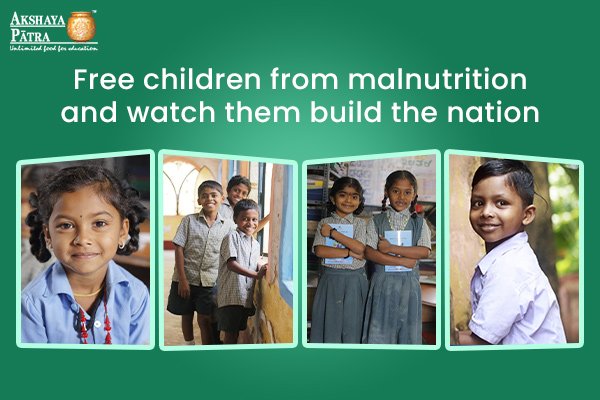
The activities of Non-Government Organizations in India are based on old concepts of many centuries—daana (giving) and seva (service). Although these early concepts are based spiritually, India needs NGOs even today, owing to its vast and ever-growing population that is predominantly rural.
The socio-economic divide between the urban and rural people in India gave rise to nationalist consciousness and not-for-profit objectives during the latter half of the 19th century. As a result, several voluntary organizations emerged.
Consequently, Societies Registration Act (SRA) was approved in 1860 offering legal status to Non-Government Organisations (NGOs).
Ever since, NGOs in India have constantly helped in uplifting the socio-economic conditions of deprived sections of society. They have contributed significantly in the fields of health, education, social welfare, empowerment and disaster relief.
Hence, the country formally recognizes them as its development partners today.
Role of NGOs in India
Around 1970s and 1980s, the role of NGOs became essential to support in the fields of development, health, education, civil liberties, environment and so on. These non-profit entities began to be recognized for intervening at the grassroots level, encouraging community participation and mobilizing the underserved sections to protect their rights.
Role of NGOs
• they can reach areas that the government authorities may fail to spot
• they research and understand the root cause of the distress
• they engage with the communities and people involved at a personal level
• they encourage community participation to figure out suitable solutions
• they supplement government’s efforts in tackling problems
However, owing to the vastness and socio-cultural diversity of the country, there remains a lot of work to be done.
Hunger and Education
State of Food Security and Nutrition in the World (SOFI) is a report generated annually by the FAO, IFAD, UNICEF, WFP and WHO to track progress towards food security, nutrition and ending hunger. The latest SOFI report published on 6 July 2022 indicated worsening food insecurity across India.
The SOFI report indicates that
• the percentage of people experiencing chronic hunger in India rose from 14.6% in 2018-20 to 16.3% in 2019-21
• India is now home to the largest number of hungry people in the world
• there is a sharp increase in people facing hunger and food insecurity, especially since the first year of the pandemic
India has the world's largest population of illiterate adults though the situation of literacy rate has improved over the years. Studies claim that the provision of mid-day meals has significantly increased enrollments of children in schools and also reduced stunting due to undernourishment.
Therefore, mid-day meals are pivotal for improving food security and literacy rates in India if implemented consistently. And this is where NGOs play an important role in supporting the efforts of the Government.
NGOs and the Mid-Day Meal Scheme
When the Mid-Day Meal (MDM) Scheme (now called the Pradhan Mantri Poshan Shakti Nirman or PM POSHAN Abhiyaan) was mandated in 2001, its implementation became a massive challenge. Thus, several NGOs in India came together to strategize and execute the scheme.
One such NGO in India is the Akshaya Patra Foundation which has been distributing school meals since 2000. After the mid-day meal mandate, it partnered with the Government of India to serve nutritious food to underprivileged children in government schools across India.
Today, the participation of millions of compassionate donors has helped Akshaya Patra serve school meals across 14 states and 2 union territories. Moreover, this NGO in India is registered under the Indian Trusts Act, 1882 and implements the world’s largest NGO-run school lunch programme.
War against Hunger in India
Apart from its core service of implementing the mid-day meal initiative (now known as PM POSHAN Abhiyaan), the Foundation always strives to expand its services to fight hunger in India. Through initiatives like Anganwadi Feeding Programme, the NGO aims to tackle malnourishment during the crucial years of child growth and development. It is also running a programme to feed homeless mothers and proactively responds to crisis situations such as floods, cyclones, earthquakes and the COVID-19 pandemic, working within and outside the boundaries of the nation.
All the food comes from the NGO's kitchens following ISO standards, FIFO (First In First Out) and FEFO (First Expiry First Out) methods during the cooking process. They implement Kaizen, 5S, GMP, CI Projects and Six Sigma methodologies for constant improvement and training of the workforce. It shows that no matter how massive the hunger crisis is, the NGO believes in serving the highest quality food to every individual in need.
Recently, it launched two new kitchens in Varanasi, Uttar Pradesh and Dehradun, Uttarakhand where each facility can feed several lakhs of children. Looking at the speed of its progress, the day does not seem to be far when…
Hunger and illiteracy in India are matters of the past!
Donate for education and nourishment of children now for a better India tomorrow!